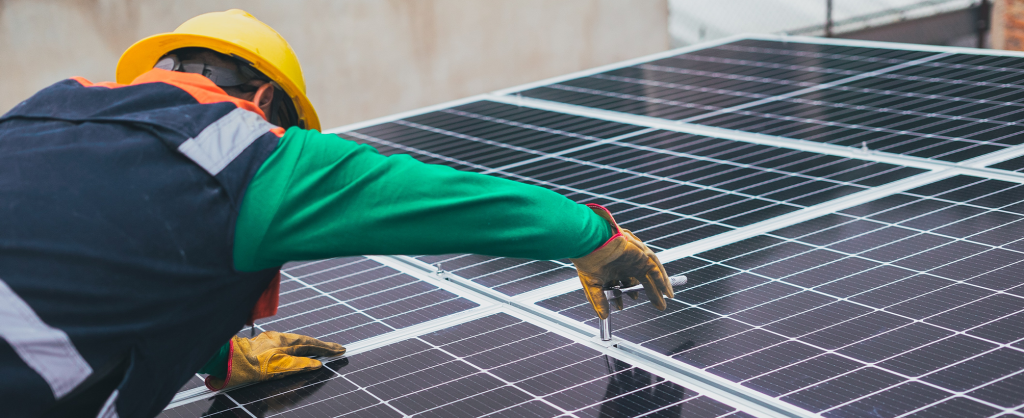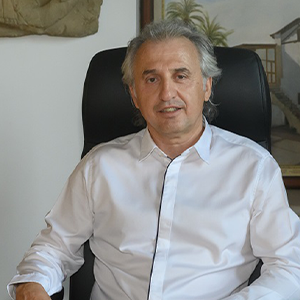The Architect & President of the Scientific and Technical Chamber of Cyprus, Constantinos Constanti, elaborates through the interview he granted to us, the need for adopting a green policy in Cyprus, thereby reducing or at least limiting the high for the environment carbon “footprint” of the construction industry.
He explains, among others, the importance of the circular economy, comments on the obstacles encountered in connecting photovoltaics to the grid, proposing solutions that could be followed by the Electricity Authority of Cyprus in order to solve the problem.
However, he also gives us advice on the conversion of residences or buildings into energy-efficient spaces, resulting in both cost savings, as well as better thermal comfort, upgrading our lifestyle and the quality of everyday life.
Interview: Nicola Karatzia
Translation: Stephie Karagiorge
Mr. Constanti, what is the role of architecture in the green transition which is considered so important?
The degradation of the built and natural environment and the climate change constitute the biggest challenges of our time. The acceleration of the green transition, including the construction industry, is an interdependent and complex challenge that must be urgently addressed, in an innovative and systemic way.
The term “Circular Economy” appears more and more often in design plans for sustainability, and at the same time, on a European level, efforts are being made to integrate it into everyday life, the way of thinking, designing, implementing and living. The prolonged use of goods, materials, and resources maintains their value within the economic cycle, minimizing waste production as well as energy consumption.
Speaking in numbers, what percentage do you think is attributed to the “involvement” of buildings in environmental destruction?
The building sector is the sector that places a heavy burden on the natural environment, as for its support, development and expansion large quantities of resources are required.
Buildings are responsible for a large percentage of the energy consumed, and at the European Union level, approximately 40% of greenhouse gases are due to them. In addition, half of the raw materials consumed in total, concern buildings and infrastructure, i.e., about 50%, but also an equally large percentage of waste, 40%, comes from construction.
In the future, the need for new resources and energy will continue to increase, while it is expected that by 2050 the demand for resource extraction will have an upward trend, if nothing changes. With the goal of a sustainable future, redefining how buildings, and therefore cities, are designed and built is imperative.
How is the redefinition you are referring to “translated” to the construction sector?
Buildings and constructions face multiple challenges and require diversification which involves, among other things, the adaptation of the built environment to climate change, implementation of the principles of circular economy, new post-pandemic living and working habits, impetus to integrate innovations (e.g. materials, technology, design methods), upskilling of the workforce, participatory processes in planning.
And in which way will the circular economy contribute to reducing unwanted environmental impacts?
By adopting the principles of circular economy in the designing of future constructions, buildings are created that require less energy, use fewer resources, and offer ideal living conditions. Architecture is the means to reduce negative environmental impacts, but also to recreate a better urban environment. Architects, armed with well-thought-out designing, can reverse the situation. It could be an opportunity for the redefinition of mindset and designing, or else we need to rethink the designing process but also to reclassify our priorities. Circular design can change the way architecture is designed, and likewise, architecture can reinforce the purpose of the circular economy. It is a two-way relationship.
Practically, what can owners of existing residences or businesses do to save energy, both for their own personal benefit and for the greater good?
Firstly, there are simple and cost-effective measures that can be taken. The Energy Service has grouped, coded and posted them on its website. Beyond that, they should seek the guidance and recommendations of an expert, who could be an architect or an engineer (of various specialties).
If it concerns large businesses or if the business has a production process – such as a fleet of vehicles – they can request an energy audit to be carried out by a suitable engineer.
It is worth mentioning that with today’s high energy prices and short-term forecasts, a series of simple passive measures, such as thermal insulation, equipment replacement, or utilization of small photovoltaic systems, present very attractive periods of payback and return on investment.
What should buyers of new residence or business premises pay attention to, so that their property is energy-efficient?
Fortunately, as far as new buildings are concerned, the legislator has foreseen and now there are requirements for high energy efficiency (thermal insulation, use of efficient systems, the satisfaction of part of the needs from renewable sources). Therefore, we should ensure that the provisions of the legislation in this regard are complied with to the greatest possible extent.
After all, legislation now stipulates that new buildings must have an energy performance certificate, akin to an energy ID. Therefore, before making a purchase, alongside all the parameters that we will take into account, such as the location, size and functionality, construction materials, aesthetic issues and cost, we should also take into account the energy performance of a building. Beyond that, especially if we are talking about business premises, the complexity and automation of systems should align with the user’s needs. A hotel with permanent technical staff will have different systems and automations than a building consisting of office units.
Are there cost-effective solutions for the energy upgrade of residences and businesses?
Certainly, given the current energy prices, there are “mature” and proven solutions with very low payback periods and a satisfactory return on investment. Improving the energy efficiency of residences and businesses shields owners from unpredictable fluctuations in energy prices. Additionally, higher energy efficiency means improved thermal comfort – improved quality of life – in residences, as well as a better working environment in businesses, resulting in increased productivity.
The Scientific and Technical Chamber of Cyprus has mentioned this in the past and reiterates it. If in the field of energy renovations, and the field of renovations of existing buildings in general, there is good organization, with the provision of appropriate incentives, this will be a “win-win situation” both for the owners, as well as for the construction sector and the economy in general.
It has come to light that there are long processing times for the examination of applications for the connection of photovoltaics to the grid, while in certain areas network inadequacies were noticed in accommodating a large number of units. How do you comment on this?
The increase in the price of electricity in recent months and the realization (better late than never) that high prices will probably be with us for a long time, have led households and businesses to turn to the installation of photovoltaics for self-consumption purposes. Unfortunately, the expected high interest in utilizing Renewable Energy Sources caught us once again unprepared. It revealed weaknesses in relation to the speed of processing applications and connecting small photovoltaics to the grid, as well as in relation to the overall capacity of the network to accommodate more Renewable Energy Sources.
Immediate actions need to be taken to resolve these issues. The Electricity Authority of Cyprus must reduce the time of processing and connecting small photovoltaics, utilizing services from the private sector if necessary. Regarding the grid issue, what is required – as soon as possible – is a well-thought-out, modern, digitalized and flexible grid network, with smart meters, storage capabilities, smart charging for electric vehicles, and the utilization of the flexibility in the demand, and not just adding substations and a larger network.

Do you consider satisfactory the energy-saving programs that are offered by the state for households and businesses? If not, which improvements do you think should be made?
The state is largely doing its part. The grant schemes for energy renovations of residences and actions to increase the energy efficiency of businesses in the current programming period (2021-2027) have significantly increased budgets, approximately 100 million euro. In other words, more than double compared to the previous programming period (2013-2020). However, further simplification of the schemes and acceleration of approvals of the applications are obviously needed, so that they do not exceed two months.
In any case, it is evident that the state sponsorship model is not sustainable in itself. Without the contribution of the domestic banking system, it is not possible to achieve the goal of mass mobilization of investments for the renovation (energetical, structural, and aesthetical) of the existing building stock, with all the advantages that this will have.
In general, the best juncture to have gotten organized and to have unlocked the benefits of energy renovations was immediately after the deposit haircut. The next most suitable juncture is today! And in this effort, Cypriot banks must not only be present but also be protagonists. All that is needed is for them to see the forest and not the tree, and to take small a leap of faith.

In closing, I would like you to inform us about the actions taken by the Scientific and Technical Chamber of Cyprus (ETEK) towards the direction of adopting the green transition in our country.
Firstly, I would like to mention that the aim of the Chamber is to promote this culture – to the state, its members and the wider public – in order to achieve the green transition in Cyprus, with the significant impact it will have on the quality of the built environment and therefore, on our lives.
For this reason, in December 2022, ETEK decided, in collaboration with the Cyprus Architects Association, to assign to a working group – a member of which is the President of the Cyprus Architects Association -, the elaboration of a policy paper on state architectural policy. This specific paper is based on corresponding policies and best practices from abroad, and it will be submitted to the competent Ministries in order to be adopted by the state.
At the core of the text under development lies the ecological, social, economic, and cultural sustainability of the built environment, with a vision to provide a comprehensive perspective for the targeted development of the built environment in Cyprus. The content of the forthcoming state policy on architecture is linked to a variety of current international initiatives, such as the European Green Deal of the EU, the New European Bauhaus, and the Sustainable Development Goals of the United Nations. The program will emphasize the importance of education, training, information, and communication to achieve the sustainability goals that have been set for our living environment.

